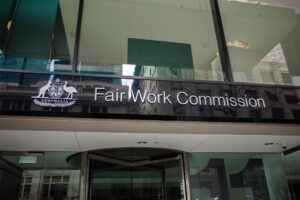Australia’s Workplace System is a confusing mess. It’s difficult to follow the rules, which constantly change. They also are written in language that just doesn’t make sense. So, what are industrial awards? How are they different from the minimum wage or agreements? Why are they called Awards? Who makes these rules, anyway? Read on, and we’ll tell you.
Creation Of Awards
In Australia, the “fair go” ethos has always been important. People don’t like seeing workers ripped off for a hard day’s work, and they don’t like seeing them paid peanuts. For this reason, we have the minimum wage, which makes sure employees can have a basic standard of living. However, some groups argued that different industries should pay workers more than the minimum wage.
In the early days of Australia, unions and business groups would fight it out in the courts to decide what wages should be. The decision was known as an “Award”, probably because the employees were “awarded” a set pay rate. These pay rates are never lower than the minimum wage – they’re always at least a little bit higher. They also give different entitlements to workers depending on the industry they’re in. This allows workers to get paid more for things like dangerous work, dirty work, or working late at night. So, Industrial Awards govern the pay and entitlements for workers in specific industries.
The Federal Government governs Industrial Awards. Many used to be controlled by individual states, but that changed in 2010 when 1,560 individual awards were reduced to 122 modern awards. The system has been criticised for still being too complicated. Some businesses employ people covered by dozens of Awards, making it difficult to keep track of pay rates and entitlements. However, attempts to simplify the system further have been strongly resisted out of fairness concerns for workers.
How Are Award Pay Rates Set?
Every year, the Fair Work Commission, a Government body, will sit down and determine the pay rates for different Industrial Awards. These rulings occur throughout the year. The Commission is made up of people appointed by the Government. It takes submissions from economists, unions, and business groups about pay rates. Unions will typically ask for large pay increases, and businesses will ask for lower or no increase. Lately, the Commission has picked the middle ground between these groups.
This means that businesses need to update all their pay rates each time the Awards change. As you can imagine, that’s very annoying and time-consuming. In the past, businesses would use the Fair Work Commission’s pay calculator to update these rules. Increasingly, businesses are turning to automated Workforce Management Systems to avoid this problem.
Tanda has built-in Award interpretation, automatically updating and adding entitlements throughout the year. Employees can use a unique code to clock in and out of work, recording their exact working hours. This allows them to be paid accurately for the exact time they work. Digital systems also automatically update pay rates for things like birthdays, ensuring pay rates tick up at the right time.
Running a digital Workforce Management System will remove complicated calculations, and give you certainty. Systems like Tanda will also keep your records on file for the required seven years, so you can immediately produce documents if Fair Work audits you. This allows you to focus on what you should be doing – managing your business.
The Difference Between Minimum Wage, Awards, and Agreements
So how come some people have their pay determined by the minimum wage, some people by awards, and some people by Enterprise Bargaining Agreements? How come some professionals negotiate their pay individually, but others have it set by these industrial instruments. Yep, it’s a mess, so let us explain it.
You can think of the minimum wage as the “floor”. No one can be paid below the minimum wage per hour, even salaried professionals. It’s set in the National Employment Standards (NES), which is the minimum rights everyone has at work. Next up is Awards. Industrial Awards cover the pay for most industries. Millions of people have their pay and conditions set by awards in Australia’s most common jobs – clerks, bartenders, cashiers, you name it, they’re most likely covered by an Industrial Award.
Throw in Enterprise Bargaining Agreements (EBA). This is where it gets a bit complicated. These are agreements that businesses have negotiated with trade unions. There are complicated rules for when businesses must negotiate with unions, which we won’t go into here. What you need to know is the EBA applies over the top of Award rates. For example, suppose, you could have a worker who’s pay is normally set by an Industrial Award. If an EBA is negotiated, the EBA pay rate will apply, not the Award rate.
Common Questions
Who Do Industrial Awards Cover?
Industrial Awards cover the vast majority of Australian workers. If you’re confused by which award your employee is covered by, try checking Fair Work’s coverage explainer.
Can An Employee Be Covered By More Than One Award?
Yes. If an employee performs multiple roles, they’re likely to be covered by different Awards when they do them. If you have a staff member at a pub that helps to cook meals but also works in the gaming room, they’re covered by different Awards when they perform different tasks.





